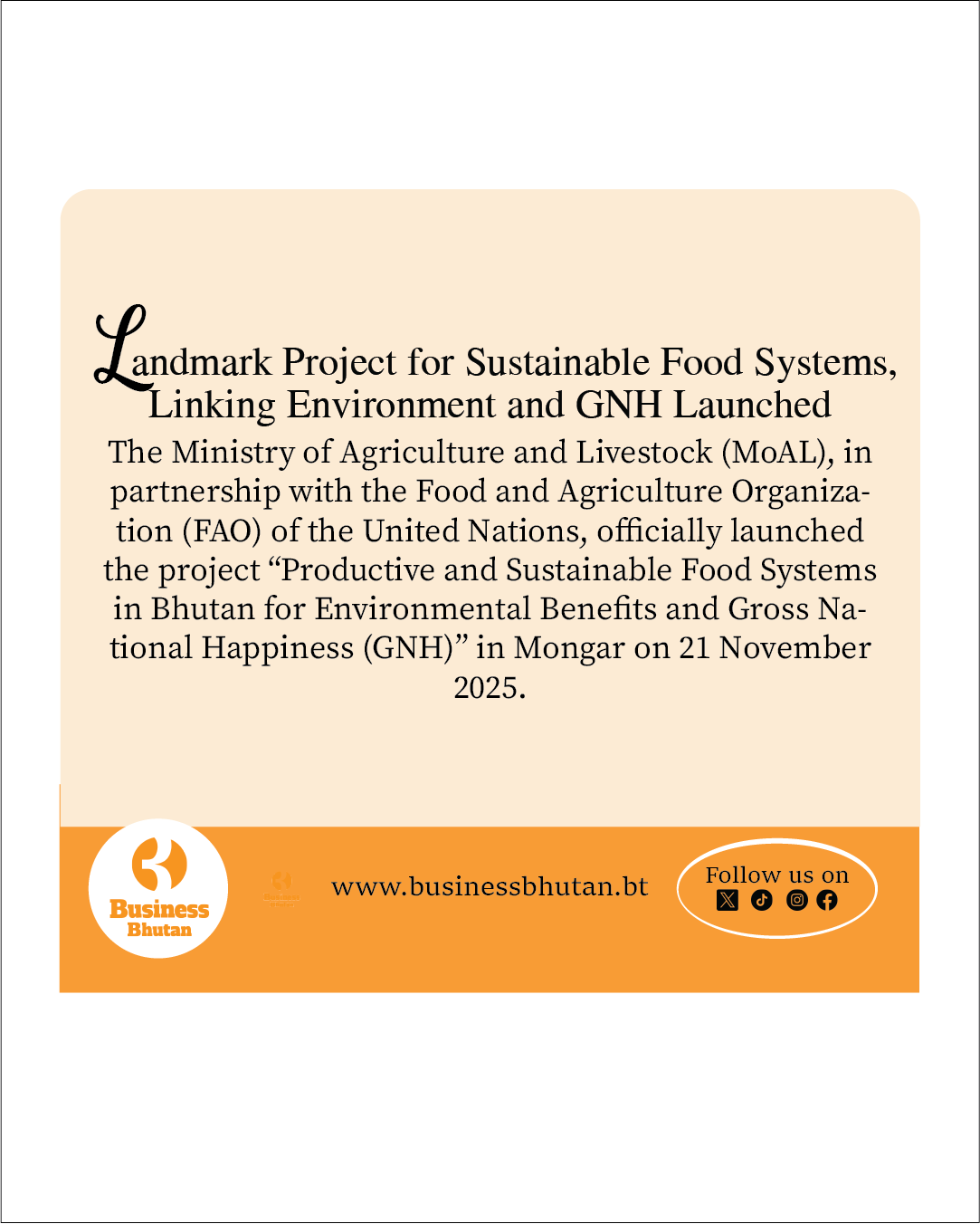AI for Development Workshop Outcomes to be Presented at UN General Assembly
Bhutan’s government technology (GovTech) is finalizing the Bhutan National AI Strategy (NAIS) 2025, which outlines eight key focus areas, each with tailored action plans to help government agencies enhance public services, stimulate economic growth, and improve quality of life, while upholding Bhutan’s ethical and cultural values. It is a bold move to leverage Artificial Intelligence (AI) and to advance the nation’s holistic development vision of Gross National Happiness (GNH).
Grounded in the principles of digital sovereignty, equity, and environmental responsibility, the strategy aims to ensure that the benefits of AI reach all citizens, particularly those in rural and underserved communities.
In agriculture and livestock, sectors that remain the backbone of Bhutan’s economy, AI tools will help optimize farming practices, boost productivity, and strengthen climate resilience. Initiatives include precision agriculture using Internet of Things (IoT) and drones, smart irrigation systems, and data-driven livestock monitoring to sustainably modernize traditional practices.
The tourism sector is set to benefit from AI-powered digital marketing, predictive analytics, and immersive technologies such as augmented and virtual reality, enabling more personalized visitor experiences and streamlined destination management.
By leveraging its abundant hydropower resources, Bhutan also aims to develop AI-enabled energy management systems and green data centers, modernizing its infrastructure and positioning the country as a regional hub for clean digital energy.
In education, AI will help bridge infrastructure gaps and expand access to personalized learning, virtual tutoring, and teacher training, with the goal of creating a more inclusive and effective system for all learners.
The healthcare sector will adopt AI for diagnostics, remote care, and personalized wellness programs, targeting the growing burden of non-communicable diseases and mental health challenges, especially in remote regions.
Public service delivery will benefit from AI-driven automation, citizen engagement tools, and integrated management systems, including smart urban safety solutions and multilingual virtual assistants to improve security and government responsiveness.
The strategy also emphasizes AI’s role in natural resource management and biodiversity conservation through advanced monitoring, drone surveys, and remote sensing technologies — all vital for Bhutan’s climate resilience and environmental stewardship.
To safeguard Bhutan’s cultural heritage, AI initiatives will include machine translation, digital archiving, and restoration projects to strengthen the Dzongkha language and preserve traditional arts and monuments for future generations.
Implementation of the strategy will require close collaboration among government agencies, the private sector, academia, and civil society to ensure AI is deployed responsibly and effectively, in line with GNH values.
An official from GovTech underscored the importance of establishing a comprehensive AI strategy and regulatory framework, along with a national data governance system to ensure high-quality, accessible data — the foundation for AI development.
However, challenges remain. The official noted Bhutan’s shortage of AI specialists, limited training opportunities, and difficulties retaining skilled professionals. He stressed the need for early talent identification, integration of AI into curricula, and targeted retention measures to build a robust local talent pool.
To support its eight focus areas, NAIS 2025 is underpinned by seven key enablers: infrastructure, governance and regulation, cybersecurity, skills development, research and development, collaboration, and funding support. These enablers are seen as essential to unlocking AI’s full potential to address national challenges, foster innovation, and drive sustainable growth.
For each enabler, critical activities have been identified and prioritized as high, medium, or low priority.
While Bhutan’s Government Data Center provides core digital infrastructure, resource constraints and limited access to quality data remain obstacles. Governance efforts are focused on establishing ethical frameworks and updating relevant policies, while cybersecurity measures are being strengthened to protect AI systems as adoption expands.
Education and skills development efforts now include AI-related subjects, but gaps persist due to a shortage of skilled professionals and limited private sector participation. Research and innovation are emerging, supported by local startups and international partnerships, though national coordination and reliance on foreign technologies remain challenges.
Currently, Bhutan does not have a dedicated AI budget. However, significant investments under the country’s 13th Five-Year Plan for digital transformation indirectly support AI initiatives.
The draft strategy also includes a robust monitoring and evaluation framework to track progress. Action plans are categorized into short-, medium-, and long-term targets, with annual reviews incorporated into government performance plans. A comprehensive strategy review is scheduled after five years.
Finally, the strategy directly addresses potential risks such as job displacement, intellectual property concerns, digital inequality, privacy issues, cybersecurity threats, misinformation, cultural erosion, and environmental impact. Each risk area will be mitigated through targeted measures including AI education, legal reforms, strengthened data protection, integrated cybersecurity, and green computing initiatives.
Meanwhile, outcomes from a two-day national workshop on AI for Development will be presented at the upcoming United Nations General Assembly (UNGA), marking a significant milestone in Bhutan’s efforts to harness AI in line with its distinctive development philosophy.
“I am delighted to share that the outcomes of this workshop will be presented at the upcoming UN General Assembly. This highlights the importance and impact of our work,” said Prime Minister Dasho Tshering Tobgay.
As Bhutan prepares to share this vision with the world at the UN General Assembly, it signals the nation’s commitment to building an AI-powered future that remains deeply rooted in its timeless values of well-being, equity, and sustainability.
Nidup Lhamo from Thimphu




![Fresh Beginnings: Pasakha Vendors Gear Up for New Vegetable Market - Duplicate - [#16963] Fresh Beginnings: Pasakha Vendors Gear Up for New Vegetable Market - Duplicate - [#16963]](https://businessbhutan.bt/wp-content/uploads/2025/11/Asset-200.png)











